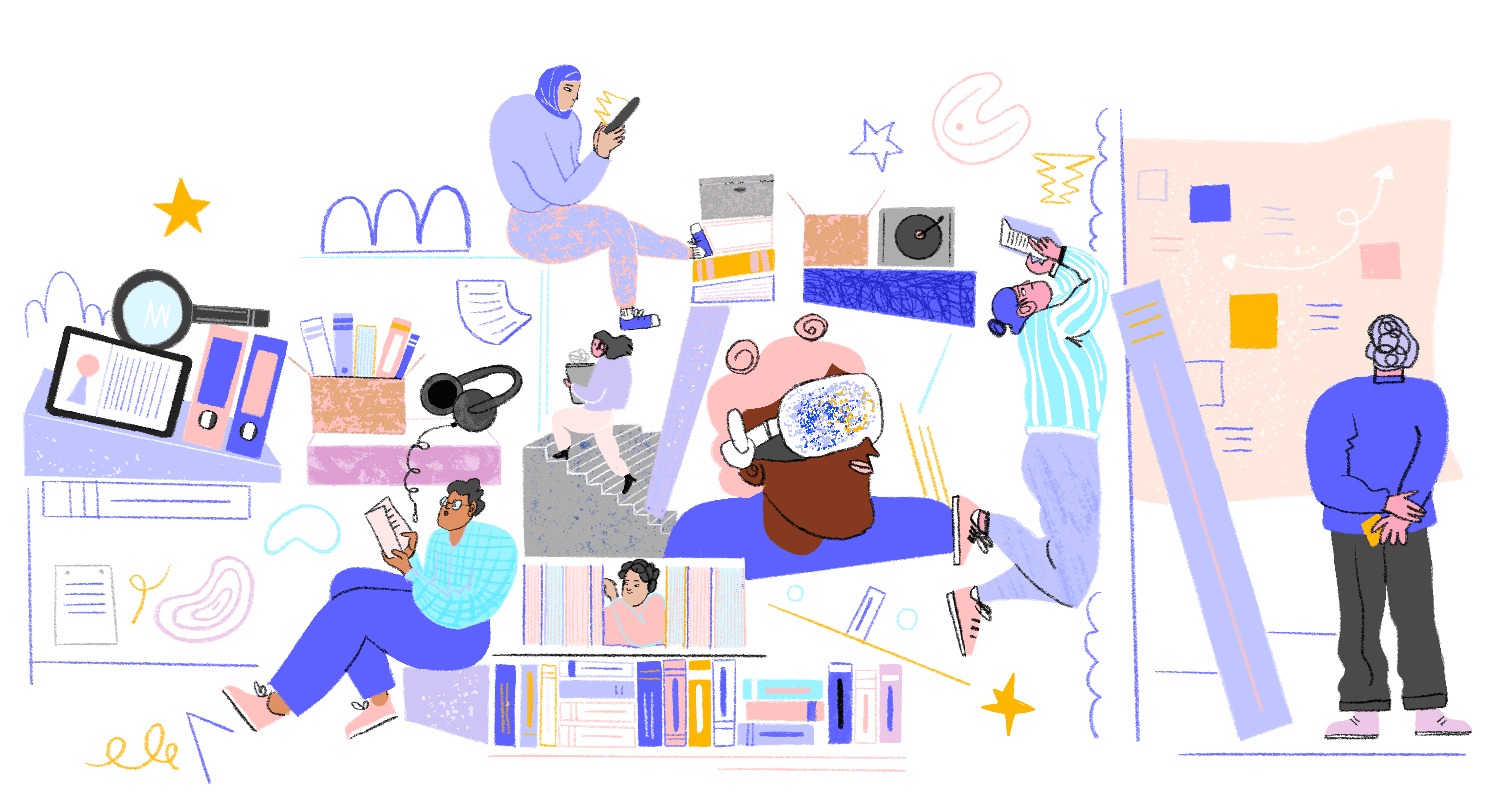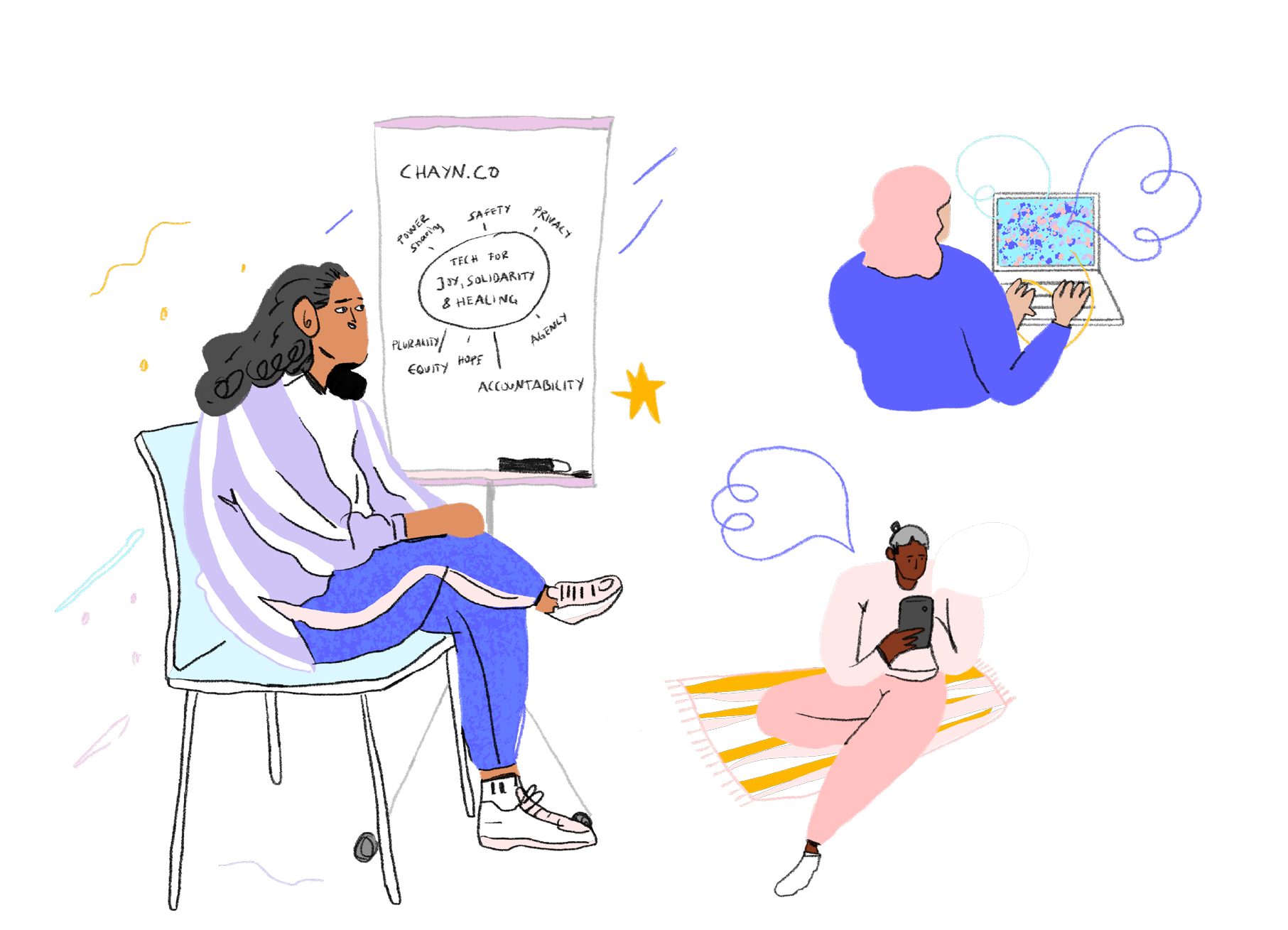
Participatory Convening Design
Rethinking common conference designs putting participants as active contributors at the centre, SUPERRR developed the concept of a participatory gathering, which is the foundation for this event series.
The event preparation and design follows some core principles, starting with bringing together a core group of co-conveners to ensure our work is participatory and informed by the diverse realities we seek to surface. This core group of co-conveners is made up of up to five organisations and/or collectives including SUPERRR, with representatives being reimbursed for participation in this project. In the process leading up to the event, the core group is tasked with discussing the core issues and topics that found the basis for the agenda, suggesting participants for the event, and using their networks and relationships to bring new people in, acting as co-hosts for the event itself, as well as giving input into event design. Central to the event design is also the identification of the facilitator, who ideally has experience of one or more of the issues covered in the event, and/or sensitivity towards the communities and issues we intend to work on. Further, the participants will also be engaged in the event design, bringing in their own perspectives and experiences to actively shape the agenda.

Methodology 2025
Building on the first Digital Futures Gathering, the concept of a collaborative event that is inspired by the people in the room was taken to another level by the next generation of co-conveners and the faciliator, who weaved together pivotal elements from futuring methods, sensory experiences, somatic and body movements to participatory methods for the second edition of the event series.

Methodology 2022
Ensuring the best experience for participants and to inspiring future collaborations among groups and organisations, who might not have met otherwise, are driving motivators of Digital Futures Gathering 2022. Co-Conveners, facilitation, and an onion-skin invitation model are all key ingredients of the SUPERRR participatory event design.